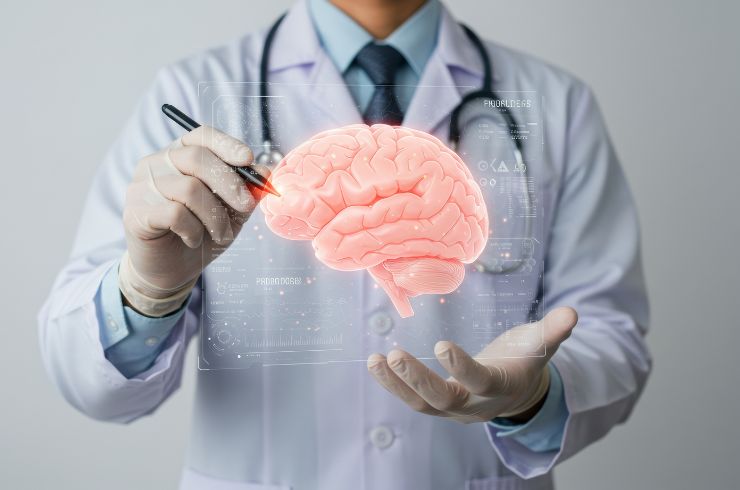
A stroke is a serious medical condition that occurs when the blood supply to part of the brain is interrupted or reduced, preventing brain tissue from getting the oxygen and nutrients it needs. Within minutes, brain cells begin to die, which is why a stroke is considered a medical emergency requiring immediate treatment.
There are two main types of stroke: ischemic stroke, caused by a blood clot blocking blood flow to the brain, and hemorrhagic stroke, caused by bleeding into the brain due to a ruptured blood vessel. In addition, a transient ischemic attack (TIA), often called a “mini-stroke,” is a temporary blockage that serves as a warning sign of a possible future stroke.
Common warning signs of stroke include sudden numbness or weakness in the face, arm, or leg (especially on one side of the body), difficulty speaking or understanding speech, blurred or double vision, dizziness, loss of balance, and sudden severe headache. Recognizing these symptoms early and seeking urgent medical help is crucial for reducing long-term complications.
At our hospital, we provide comprehensive stroke care through advanced diagnostic tools such as CT scans, MRIs, and neuro-electrophysiological studies. Our team of neurologists, neurosurgeons, and rehabilitation specialists work together to ensure timely treatment, including clot-dissolving medications, minimally invasive surgical interventions, and dedicated neurocritical care.
Recovery from stroke often requires a combination of physiotherapy, occupational therapy, and speech therapy to help patients regain independence and improve their quality of life. Emotional and psychological support is also provided for both patients and their families, as post-stroke recovery can be challenging.
Our goal is not only to save lives but also to restore function and provide long-term care plans to minimize the risk of recurrence. With expert guidance, modern technology, and compassionate care, we strive to give every stroke patient the best chance at recovery.